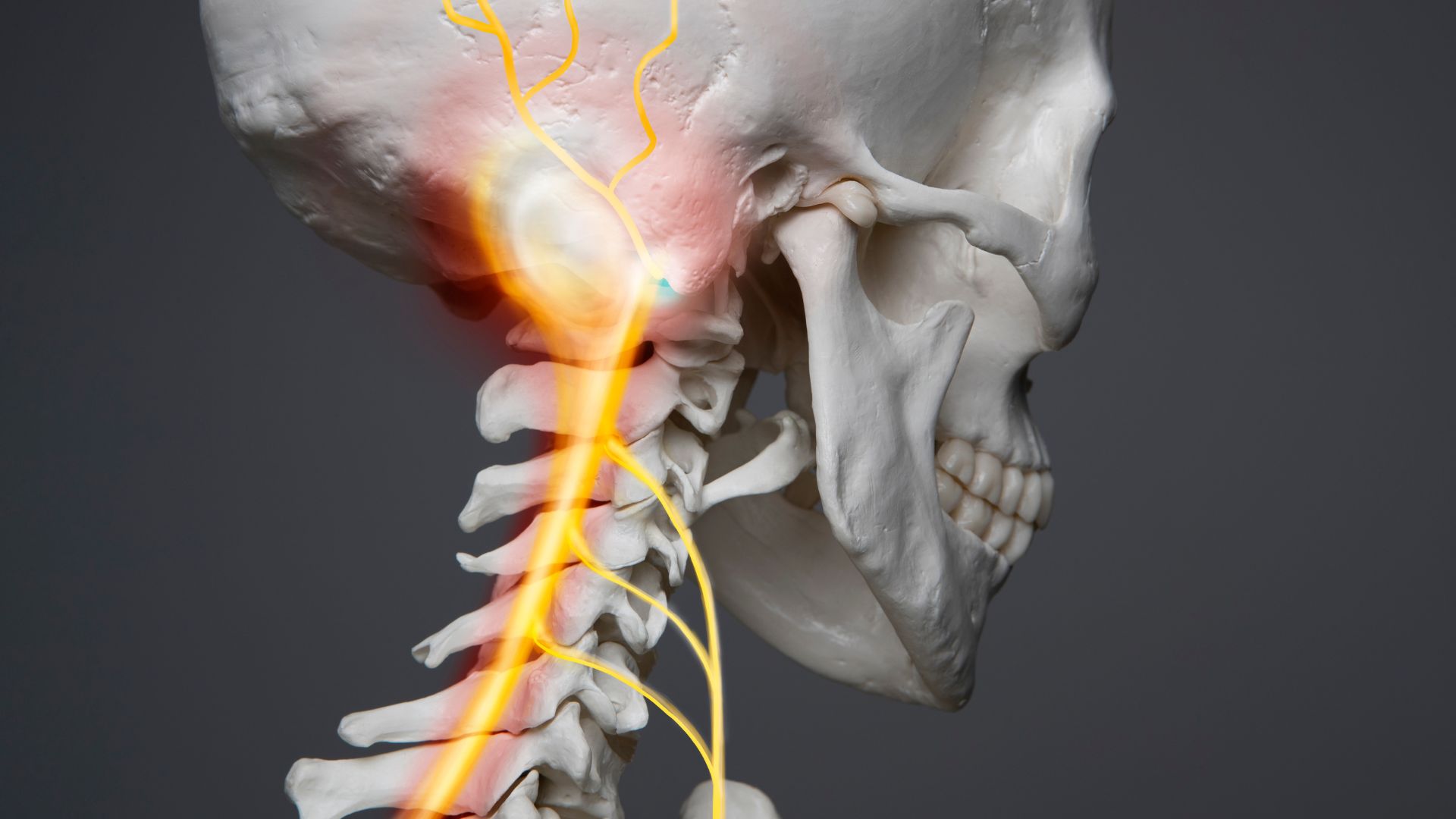Brain and Spine Tumors – Rare but Life-Altering
Brain and spinal cord tumors may be relatively rare, but their effects are often life-altering. These tumors can impact vital functions such as movement, memory, speech, and coordination. Given that they occur in some of the most complex and sensitive areas of the body, even small tumors can lead to major disruptions in quality of life. While public awareness remains low, early recognition and expert intervention can change outcomes dramatically.
Global and National Impact
Each year, over 300,000 people worldwide are diagnosed with brain and central nervous system (CNS) tumors, making them a significant yet often overlooked cause of cancer-related deaths. They rank as the 11th leading cause of cancer mortality globally.
In India, brain tumors occur at a rate of approximately 5–10 cases per 100,000 people annually. They affect both children and adults. Among the most frequently diagnosed types are gliomas and meningiomas. Meanwhile, spinal cord tumors, though less common, are being identified more often thanks to advances in imaging technology.
📢 Persistent headaches, vision changes, or limb weakness are not symptoms to ignore. These could be warning signs from your nervous system.
✅ Consult a brain and spine cancer specialist in Lucknow for early evaluation.
What Causes Brain and Spine Cancer?
Unlike many other cancers, brain and spine tumors often lack clear environmental triggers. Most cases do not have any known preventable causes. However, several risk factors have been identified.
Genetic mutations such as EGFR, IDH1, and TP53 play a major role in many gliomas. Some people are born with hereditary syndromes like Li-Fraumeni syndrome or Neurofibromatosis (NF1 or NF2), which increase the risk of tumors in the brain or spinal cord. Exposure to ionizing radiation, especially during childhood, is also associated with increased risk.
Brain tumors are slightly more common in men, whereas meningiomas tend to occur more often in women. While occupational exposures like formaldehyde and vinyl chloride are being studied, a strong link is yet to be established.
Although lifestyle factors may not be major contributors, being aware of early symptoms remains key for timely intervention.
Symptoms of Brain and Spine Tumors
The symptoms of brain and spinal tumors are highly variable and depend on the tumor’s size, growth rate, and location.
In the brain, symptoms may include headaches that worsen in the morning or with exertion, unexplained vomiting, seizures (especially if they occur for the first time in adulthood), changes in vision or hearing, personality or memory disturbances, weakness or numbness on one side of the body, difficulty speaking, and confusion.
In the spine, patients often report persistent back pain that does not improve with rest. Other signs include numbness, tingling, or weakness in the limbs, problems with walking, and loss of control over bowel or bladder function. Children may even show spinal deformities or scoliosis.
📢 One seizure, one episode of sudden vision loss, or one bout of unexplained confusion can be a crucial warning.
✅ Seek evaluation by a brain and spine cancer specialist in Lucknow without delay.
Diagnosing Brain and Spine Tumors
Accurate diagnosis begins with high-resolution imaging. An MRI of the brain or spine with contrast remains the gold standard for identifying and mapping tumors. In emergencies, CT scans may help identify bleeding or bone involvement. Advanced tools like MR spectroscopy can help distinguish tumor types. For recurrence or spread, PET-CT scans are used.
A definitive diagnosis requires a biopsy, which may be stereotactic (minimally invasive) or open, depending on tumor location. In certain cases, especially when the tumor has spread to the fluid around the brain and spine, a lumbar puncture may be done. Molecular testing (IDH, MGMT, 1p/19q, EGFR, BRAF) is now essential in modern neuro-oncology to tailor treatment plans.
🏥 A qualified brain and spine cancer specialist in Lucknow can guide you through this complex diagnostic journey with precision and care.
Types and Grades of Brain and Spine Tumors
Brain tumors are classified based on their cell type and aggressiveness.
Gliomas, which include astrocytomas and glioblastomas, are the most common malignant brain tumors. Meningiomas, though often benign, can still cause significant symptoms and may recur. Medulloblastomas are aggressive tumors seen primarily in children, often affecting balance and coordination. Pituitary adenomas may disrupt hormone balance. Metastatic tumors, which spread from other organs like the lungs or breasts, are also frequently seen.
Spinal tumors are categorized by location:
- Intramedullary tumors (within the spinal cord) include astrocytomas and ependymomas.
- Extramedullary-intradural tumors (outside the cord but inside the protective covering) include meningiomas and schwannomas.
- Extradural tumors (outside the dura) often include metastases or chordomas affecting the vertebrae.
Tumors are graded by the WHO system:
- Grade I–II are low-grade and slower growing.
- Grade III–IV are high-grade and aggressive, such as glioblastoma multiforme (GBM).
Treatment Options by Grade and Site
Treatment plans are individualized, taking into account tumor type, grade, location, and the patient’s overall condition. Multidisciplinary care is essential and often includes neurosurgery, radiation oncology, and medical oncology.
For low-grade brain tumors (Grade I–II), the goal is maximal safe surgical removal. If some tumor remains, radiation may be used. Chemotherapy is often not needed unless the tumor grows or transforms.
For high-grade tumors (Grade III–IV) like glioblastoma, surgery is followed by radiation and chemotherapy. The current standard is the Stupp protocol, which combines radiation with oral temozolomide chemotherapy. Recurrent tumors may be treated with targeted therapies or re-irradiation.
For spinal tumors, surgery is often performed to decompress the spinal cord and stabilize the spine. Radiation is particularly useful for radiosensitive tumors. In some cases, chemotherapy is given, especially if the tumor is metastatic or lymphoma. Steroids may be prescribed to reduce inflammation and relieve pressure on the spinal cord.
Targeted and Immunotherapy
Targeted therapy is an evolving area in neuro-oncology. Bevacizumab, which blocks blood vessel growth (anti-VEGF), is sometimes used in recurrent glioblastoma. EGFR inhibitors and BRAF-targeted drugs are under research for specific tumor types with known mutations.
Immunotherapy for brain tumors is still experimental. The blood-brain barrier limits drug access, but checkpoint inhibitors like nivolumab and pembrolizumab are being trialed in select cases, especially those with high mutational burden or MSI-H tumors.
Genetic profiling of tumors is increasingly guiding such personalized treatment strategies.
Rehabilitation and Quality of Life
Recovery from brain and spine cancer doesn’t end with surgery or chemotherapy. Neurorehabilitation is key. Patients often need support with speech, movement, balance, and cognition. Occupational therapy, physical therapy, and speech therapy help patients regain independence.
In advanced cases, palliative care provides symptom relief and emotional support, helping patients and families cope with the journey. Psychological counseling, caregiver support, and survivorship planning are vital components of holistic cancer care.
📢 Brain tumors affect more than just the individual—they touch entire families.
✅ Partner with a brain and spine cancer specialist in Lucknow who offers comprehensive, compassionate care.
FINAL NOTE: Where Strength Meets Science
Brain and spine cancers, while rare, require timely attention, expert care, and a personalized treatment approach. With advances in diagnostic imaging, molecular testing, surgery, and targeted therapies, outcomes are improving. But perhaps most importantly, early detection combined with a multidisciplinary team can preserve not just life—but quality of life.
👉 Don’t dismiss symptoms that just don’t feel right.
👉 Think ahead. Act early. Protect your brain and spine.
📢 Your nervous system is priceless. Don’t gamble on guesswork.
✅ Book a consultation with a leading brain and spine cancer specialist in Lucknow today.
Schedule Your Evaluation Now
If you or your loved one is experiencing unexplained headaches, seizures, spinal pain, or limb weakness:












